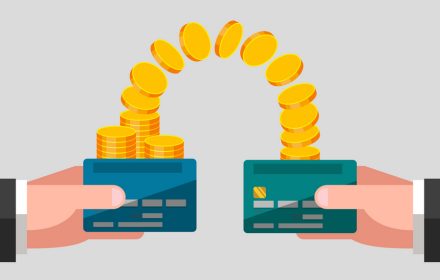Licensing of online casinos has become a key element of the modern gambling market. It ensures transparency, regulates operators’ activities, and protects players’ interests.
Having an official license increases trust in the platform, guaranteeing that payouts, security, and fairness of gaming processes are under the control of the government or a reputable regulator. Today, a license is not just a formality but a real tool for supervision and combating fraud in the online sector.

The Role of Licensing in Gambling
A casino license serves as proof that an operator’s activities comply with established requirements. It is issued after checking the software, payout conditions, financial stability, and compliance with responsible gaming rules. Licensed platforms undergo regular audits, reducing the risk of using dishonest algorithms and protecting players from unfair conditions.
Different countries have their own regulators—from Curacao to Malta and the UK—that apply various control standards. The stricter the supervision, the higher the trust in the platform.
Licensing of Online Casinos as a Safety Guarantee
From a player’s perspective, licensing is a guarantee that data and funds in an online casino are protected. Regulators require platforms to use modern encryption, protect personal information, and prevent interference with the operation of random number generators. This makes the gaming process highly transparent and eliminates fraudulent schemes.
Support is also considered essential. Licensed operators are required to provide round-the-clock customer service capable of quickly resolving disputes.
Key Jurisdictions and Their Requirements
Popular jurisdictions include Curacao, Malta, and the UK. Each has its own standards:
- Curacao—lenient policies, minimal taxes, but less strict control;
- Malta—high level of regulation, thorough operator checks, reputation as a reliable gambling hub;
- UK—one of the strictest regulators, stringent requirements for software, advertising, and responsible gaming policies.
The choice of jurisdiction not only affects players’ trust but also business opportunities, making licensing of online casinos a key factor in reputation building and ensuring platform stability.
How to Verify a Casino License?
To ensure the reliability of a platform, several actions need to be taken:
- Visit the operator’s official website and find the section with license information;
- Verify the license number with the data on the regulator’s website;
- Check the validity and expiration date of the license;
- Ensure that the jurisdiction is among the list of reputable regulatory authorities.
This verification helps avoid the risk of fund loss and interaction with illegal resources.
Why Licensing is Important for Operators?
From a business perspective, licensing for online casinos provides access to the legal market, expands the audience, and reduces the likelihood of fines. A licensed platform can partner with software developers, work with reliable payment systems, and attract customers due to its official status.
Furthermore, a license helps build a long-term reputation. In a competitive environment, trust is a key asset, and having permission from a reputable regulator becomes a competitive advantage.
Advantages of Licensing for Players and Businesses
Obtaining a license brings benefits to both sides of the gaming process:
- Protection of financial interests and personal data;
- Guarantees of fair operation of the random number generator;
- Fast and transparent payout of winnings;
- Prevention of fraud;
- Official resolution of disputes through the regulator.
This interaction shapes a stable market where the interests of both players and operators are respected.
Licensing of Online Casinos and Software Quality Control
A key aspect checked when issuing a license is the quality of the software. Regulators require games to undergo certification by independent auditing companies. This prevents algorithm manipulation and ensures the fairness of results.
Software testing includes checking the random number generator, analyzing payout mechanics, and verifying compliance with declared win rates. Operators that fail such checks cannot obtain permission to operate.
Legal Responsibility and Penalties
Operating without a license can lead to serious consequences: hefty fines, site blocking, and even criminal liability in certain countries. Regulators can suspend a company’s operations upon discovering violations, and in case of systematic issues, revoke the license.
Having a permit disciplines operators, encouraging them to follow rules and avoid contentious situations, underscoring once again the importance of licensing for online casinos.
How Does the State Monitor the Market?
Government bodies and regulators monitor the activities of licensed platforms. This includes:
- Analysis of financial operations and compliance with anti-money laundering requirements;
- Control over advertising and adherence to age restrictions;
- Verification of technical specifications and site stability.
This oversight maintains a high level of trust and protects market participants.
Licensing of Online Casinos as a Tool to Combat Fraud
In the face of increasing numbers of illegal platforms, licensing of online casinos becomes a barrier to abuses. Regulatory bodies verify the operator’s funding sources, financing origins, and activities of affiliated companies, preventing involvement in shadow schemes.
This is especially important for international players who choose platforms with a reliable reputation.

Conclusion
Licensing of online casinos is not a formality but a necessary element of a stable and secure market. It ensures data protection, fair gaming, fast payouts, and the legal status of the operator.
For players, having a license is a guarantee that the platform is under the control of a reputable regulator, and for businesses, it is an opportunity to operate legally and thrive in a competitive environment!
 en
en  de
de  ar
ar  es
es  hi
hi  nl
nl  fr
fr  it
it  pt
pt  el
el 









